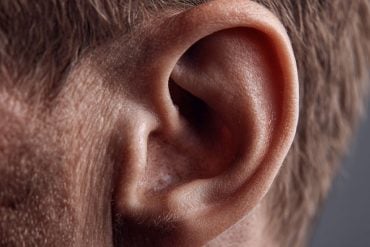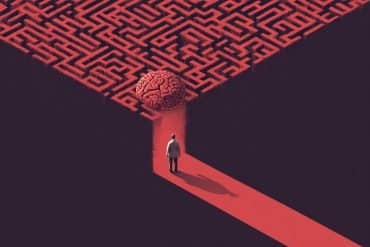Summary: Older adults who studied to learn a new language showed similar improvements in critical cognitive skills as those who used brain training apps to stay sharp.
Source: Baycrest
Learning a second language is an effective and enjoyable way to improve brain health, reports a new study that was jointly conducted by Baycrest and York University.
Researchers found that older adults who studied Spanish showed similar improvements in certain critical cognitive skills as did those who engaged in brain training activities that targeted those skills. These results are remarkable given that brain training focuses specifically on improving these aspects of cognition, while language learning does not. As well, those who learned Spanish reported greater enjoyment than those who engaged in brain training.
This study is among the first to examine whether the process of learning a language can benefit brain health in similar ways as bilingualism.
“These results are exciting because they indicate that older adults can reap cognitive benefits from an enjoyable activity in which they might want to participate, regardless of these benefits,” says Dr. Jed Meltzer, Baycrest’s Canada Research Chair in Interventional Cognitive Neuroscience, a neurorehabilitation scientist at Baycrest’s Rotman Research Institute (RRI) and the lead author on this study.
Evidence suggests that bilingualism has a protective effect on brain health, with bilinguals developing dementia later in life than monolinguals. However, little is known about the cognitive impact of the process of learning a second language without becoming fully bilingual.
“The participants in our study showed significant cognitive improvements without becoming nearly fluent in Spanish, which suggests that you don’t have to be bilingual for your brain to benefit from working with another language,” says Dr. Ellen Bialystok, Distinguished Research Professor in the Department of Psychology at York University, and Associate Scientist at the RRI.
“This is encouraging since bilingualism is often reached early in life and difficult to achieve in adulthood, while we can choose to learn another language at any age to reap some of the cognitive benefits enjoyed by bilingual individuals.”
In the study, the researchers recruited 76 older adults aged 65-75. All participants spoke only one language, were cognitively healthy, had never formally studied Spanish before and had not studied any other language in the past 10 years.
Participants were randomly assigned to one of three groups: language learning, brain training or a waitlist (with no language learning or brain training), which served as the control group. For 16 weeks, those in the language learning group spent 30 minutes a day, five days a week learning Spanish using Duolingo, an online language learning app. Those in the brain training group spent the same amount of time but used BrainHQ by Posit Science.
The researchers assessed participants’ performance on specific cognitive tasks before and after the 16 weeks. These tasks were similar to the exercises in BrainHQ. At the end of the intervention, they also measured participants’ adherence to the learning schedule and their enjoyment of the program they followed (language learning or brain training).
They found that participants in the language learning group showed similar improvements as the brain training group in two areas of cognition: working memory and executive function – that is, the ability to manage conflicting information, stay focused and avoid distractions.
In contrast, only the brain training group showed improvements in processing speed. This result was expected, since brain training specifically targets this skill by adding time pressure to each activity, while the language learning settings used in this study did not include any such pressure.

Additionally, the language learning group reported more enjoyment of their program than the brain training group. This was reflected in their answers to a questionnaire as well as their adherence to the program: the language learning group followed the learning schedule more consistently than the brain training group did.
“Besides the cognitive benefits, learning a second language may enrich older adults’ lives in other important ways – for instance, by leading to new friendships or opening the door to a new culture or travel, helping them live life to the fullest,” says Dr. Meltzer, who is also an Associate Professor in the Departments of Psychology and Speech-Language Pathology at the University of Toronto.
This study was funded by a grant from the Centre for Aging + Brain Health Innovation (CABHI), with additional support from Duolingo. CABHI and Duolingo had no role in the study design, analysis or interpretation of results.
With additional funding, the researchers could look at the brain health effects of language learning under time constraints, to see whether this might lead to similar improvements in processing speed as brain training. This would also better reflect real-world settings in which language is used, since we do not have infinite time to listen and respond when engaging in conversation.
About this language, learning, and cognition research news
Author: Sophie Boisvert-Hearn
Source: Baycrest
Contact: Sophie Boisvert-Hearn – Baycrest
Image: The image is in the public domain
Original Research: Open access.
“Improvement in executive function for older adults through smartphone apps: a randomized clinical trial” by Jed Meltzer et al. Aging Neuropsychology and Cognition
Abstract
Improvement in executive function for older adults through smartphone apps: a randomized clinical trial
Bilingualism has been linked to improved executive function and delayed onset of dementia, but it is unknown whether similar benefits can be obtained later in life through deliberate intervention. Given the logistical hurdles of second language acquisition in a randomized trial for older adults, few interventional studies have been done thus far.
However, recently developed smartphone apps offer a convenient means to acquire skills in a second language and can be compared with brain training apps specifically designed to improve executive function.
In a randomized clinical trial, 76 adults aged 65–75 were assigned to either 16 weeks of Spanish learning using the app Duolingo 30 minutes a day, an equivalent amount of brain training using the app BrainHQ, or a waitlist control condition.
Executive function was assessed before and after the intervention with preregistered (NCT03638882) tests previously linked to better performance in bilinguals. For two of the primary measures: incongruent Stroop color naming and 2-back accuracy, Duolingo provided equivalent benefits as BrainHQ compared to a control group. On reaction time for N-back and Simon tests, the BrainHQ group alone experienced strong gains over the other two groups. Duolingo was rated as more enjoyable.
These results suggest that app-based language learning may provide some similar benefits as brain training in improving executive function in seniors but has less impact on processing speed. However, future advancements in app design may optimize not only the acquisition of the target language but also the side benefits of the language learning experience.






